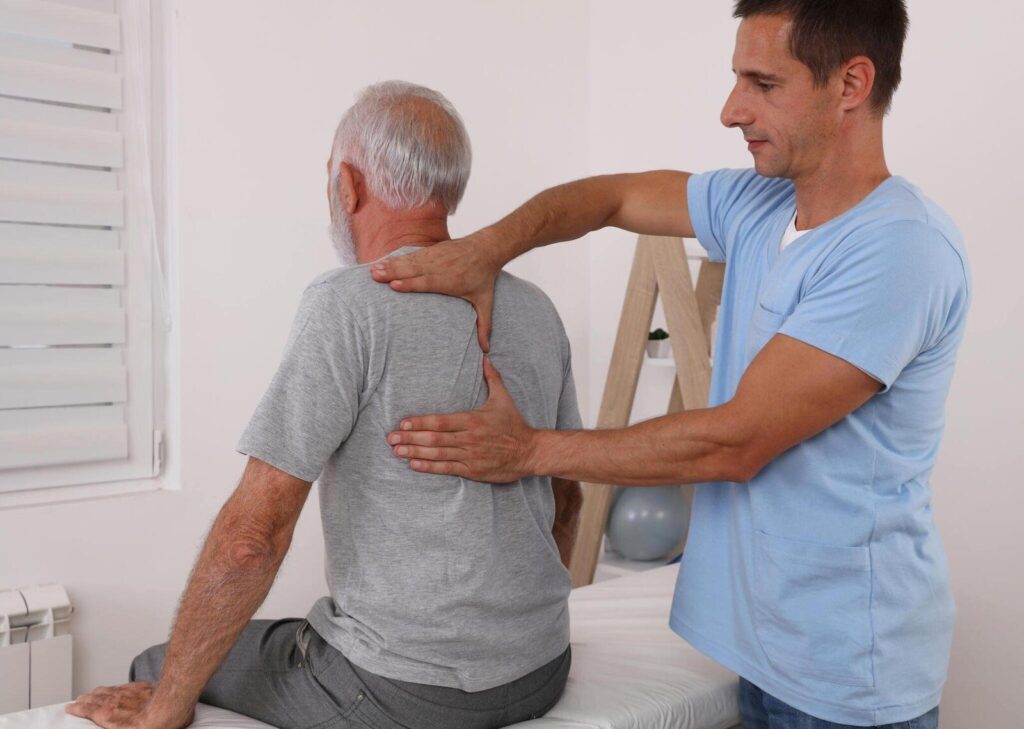Physical therapy clinics play a crucial role in enhancing the health and well-being of individuals recovering from injuries, managing chronic conditions, and striving to optimize their physical function and mobility.
Beyond merely providing treatment, these clinics offer a wide range of services that can positively impact patients’ lives in various ways.
In this comprehensive guide, we will delve into the life-changing services provided by physical therapy clinics, exploring their multifaceted approach to patient care and the transformative effects they can have on individuals’ lives.
Comprehensive Assessment and Evaluation
Comprehensive assessment and evaluation form the foundation of effective physical therapy care, providing therapists with valuable information to develop personalized treatment plans and monitor patient progress. If you want to get physical therapy in Scottsdale, you can also visit Camelback Medical Centers.
1. Initial Consultation
Physical therapy clinics begin by conducting a thorough initial consultation with each patient to understand their medical history, current symptoms, functional limitations, and treatment goals.
2. Functional Movement Assessment
A comprehensive functional movement assessment is performed to evaluate the patient’s strength, flexibility, balance, coordination, and mobility. This assessment helps identify areas of dysfunction, asymmetry, or weakness that may be contributing to the patient’s symptoms and informs the development of targeted interventions.
3. Diagnostic Testing
In some cases, physical therapy clinics may perform diagnostic tests such as musculoskeletal ultrasound, electromyography (EMG), or nerve conduction studies to further evaluate the patient’s condition and guide treatment decisions.
Customized Treatment Plans
Customized treatment plans are the cornerstone of effective physical therapy care, tailored to address the specific needs, goals, and preferences of each patient.
1. Individualized Exercise Programs
Physical therapy clinics develop individualized exercise programs tailored to each patient’s unique needs, abilities, and treatment goals. These programs typically include a combination of strengthening exercises, and functional movements designed to improve mobility, stability, and overall physical function.
2. Modalities and Therapeutic Interventions
Physical therapy clinics offer a variety of modalities and therapeutic interventions to complement exercise therapy and manual techniques. These may include heat therapy, cold therapy, ultrasound, electrical stimulation, traction, and hydrotherapy, among others.
3. Manual Therapy Techniques
Manual therapy techniques such as joint mobilization, soft tissue mobilization, myofascial release, and manual stretching are commonly used in physical therapy clinics to address musculoskeletal dysfunction, reduce pain, and improve range of motion.

Pain Management and Rehabilitation
Pain management and rehabilitation are integral components of physical therapy practice, aimed at alleviating pain, restoring function, and improving quality of life for individuals experiencing musculoskeletal injuries, chronic pain conditions, or functional limitations.
1. Injury Rehabilitation
Physical therapy clinics specialize in the rehabilitation of sports injuries, workplace injuries, motor vehicle accidents, and other traumatic injuries. Through a combination of therapeutic exercises, manual therapy, modalities, and functional training.
2. Chronic Pain Management
Chronic pain conditions such as osteoarthritis, fibromyalgia, and low back pain are common reasons for seeking physical therapy services. Physical therapy clinics employ evidence-based interventions such as therapeutic exercise, manual therapy, and pain neuroscience education.
3. Post-surgical Rehabilitation
Physical therapy clinics play a crucial role in post-surgical rehabilitation, helping patients recover from orthopedic surgeries such as joint replacement, ligament repair, and spinal fusion. They develop comprehensive rehabilitation programs tailored to the specific surgical procedure.
Education and Empowerment
Education and empowerment are fundamental principles in healthcare, aimed at equipping individuals with the knowledge, skills, and confidence to take an active role in managing their health and well-being.
1. Patient Education Workshops
Physical therapy clinics offer patient education workshops and seminars on various topics related to musculoskeletal health, injury prevention, and self-management strategies. These educational sessions empower patients to take an active role in their recovery.
2. Home Exercise Programs
Physical therapy clinics provide patients with personalized home exercise programs designed to complement in-clinic treatment and promote continuity of care. These programs include detailed instructions, illustrations, and video demonstrations of therapeutic exercises.
3. Lifestyle Modifications
Physical therapy clinics offer guidance and support for making lifestyle modifications that promote musculoskeletal health and overall well-being. This may include recommendations for ergonomic improvements, posture correction, nutritional counseling, and stress management.
Preventive Care and Wellness Promotion
Preventive care and wellness promotion are critical aspects of healthcare aimed at preventing illness, promoting health, and improving overall well-being.
1. Injury Prevention Strategies
Physical therapy clinics develop injury prevention programs for athletes, active individuals, and occupational populations to reduce the risk of musculoskeletal injuries and enhance performance.
2. Health and Fitness Education
Physical therapy clinics promote health and fitness education as part of their preventive care initiatives, providing patients with evidence-based information on exercise, nutrition, hydration, and recovery strategies.
3. Ergonomic Assessments
Physical therapy clinics offer ergonomic assessments and workplace evaluations to identify ergonomic risk factors and prevent work-related musculoskeletal injuries. They collaborate with employers to implement ergonomic interventions, modify workstations, and educate employees on proper body mechanics.
Holistic Approach to Care
A holistic approach to care recognizes that individuals are complex beings with interconnected physical, mental, emotional, social, and spiritual dimensions. It emphasizes the importance of addressing all aspects of a person’s well-being to promote optimal health and wellness.
1. Collaborative Care Model
Physical therapy clinics embrace a collaborative care model that emphasizes interdisciplinary collaboration and communication among healthcare providers, including physicians, surgeons, chiropractors, massage therapists, and other allied health professionals.
2. Integration of Allied Health Professionals
Physical therapy clinics integrate allied health professionals such as occupational therapists, speech-language pathologists, nutritionists, and psychologists into their multidisciplinary teams to provide holistic care for patients with complex medical conditions or functional limitations.
3. Mind-Body Wellness Initiatives
Physical therapy clinics recognize the importance of addressing the mind-body connection in promoting overall health and well-being. They offer mind-body wellness initiatives such as mindfulness training, stress management techniques, relaxation exercises, and meditation sessions.
Patient-Centered Care and Support
Patient-centered care and support prioritize the individual’s preferences, needs, values, and goals, placing them at the center of the healthcare experience. It involves actively involving patients in decision-making, respecting their autonomy, fostering open communication, and providing compassionate and personalized care.
1. Emotional Support and Counseling
Physical therapy clinics provide emotional support and counseling to patients coping with the physical, emotional, and psychological aspects of injury, illness, or chronic pain. They create a supportive and compassionate environment.
2. Advocacy and Resources
Physical therapy clinics advocate for patients’ rights and access to quality healthcare services by providing information, resources, and referrals to community support organizations, patient advocacy groups, and social services agencies.
3. Follow-up and Continuity of Care
Physical therapy clinics prioritize follow-up care and continuity of care to monitor patients’ progress, address any concerns or complications, and adjust treatment plans as needed. They maintain open lines of communication with patients.
Conclusion
Physical therapy clinics play a vital role in transforming lives through their comprehensive range of services aimed at promoting health, restoring function, and improving the quality of life for individuals of all ages and abilities.
By offering personalized, evidence-based care, fostering community engagement, and advocating for patient-centered approaches, these clinics empower individuals to achieve their goals, overcome challenges, and live life to the fullest.
